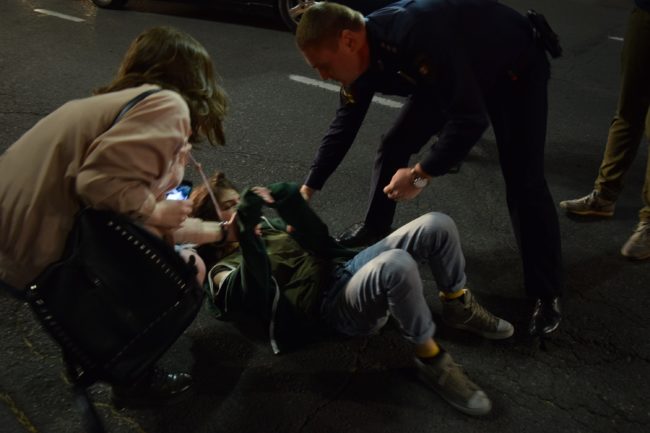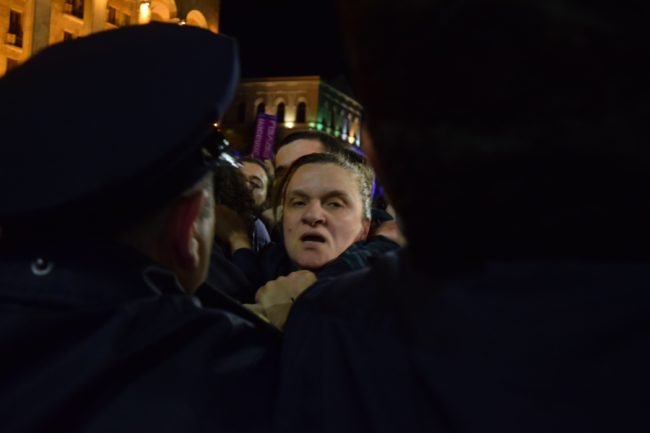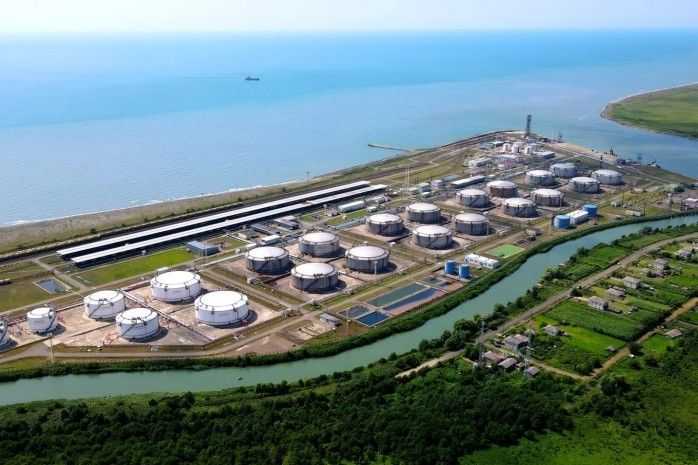

 Four miners died on 9 May after a lift collapsed in a coal shaft in Tkibuli, in central Georgia. Protests broke out in solidarity in Georgia’s capital Tbilisi following the news, with three activists arrested.
Four miners died on 9 May after a lift collapsed in a coal shaft in Tkibuli, in central Georgia. Protests broke out in solidarity in Georgia’s capital Tbilisi following the news, with three activists arrested.
Four local men were trying to repair the lift in the shaft when it collapsed for ‘unknown reasons’, according to the mining company, Saknakhshiri.
The workers fell approximately 350 metres into the mine, making it difficult for rescue workers to reach them. Their bodies were retrieved early in the morning of 10 May.
Police have opened an investigation for possible violations of safety rules, and Labour inspectors were sent to Tkibuli to examine the scene. Saknaxshiri has announced its own investigation into the cause of the accident.
‘You are murderers’

The incident comes as labour rights and violations of safety rules at workplaces have become a central issue for rights groups in Georgia.
‘Everyone in the government, parliament, constitutional commission, and elsewhere who opposes the creation of an effective labour inspection mechanism, you are murderers’, the Public Defender of Georgia Ucha Nanuashvili wrote on his Facebook profile. ‘We’ve been urging them to create an effective inspection mechanism for four years’, he added.
[Read on OC Media: Fatal workplace accidents show ‘need for labour inspection reform’]
Georgia’s Minister of Economy Giorgi Gakharia said that ‘everyone confirmed to have contributed to this accident will be punished’. The families of the deceased will receive compensation from the government and the company, he added.
Prime Minister Giorgi Kvirikashvili and President Giorgi Margvelashvili offered their condolences to the families of the miners. ‘The investigation will soon determine the cause of the tragedy’, Kvirikashvili’s statement read.
‘These numerous tragedies cannot be considered as plain “accidents”. The quality of current labour protection mechanisms does not effectively prevent similar disasters’, the president said.
Minister of Regional Development and Infrastructure Zurab Alavidze said he will urge the government to ‘tighten control’ in high-risk industries.
Demonstrators arrested

Left-wing student group Auditorium #115, which has been campaigning for better labour conditions, held a protest and solidarity demonstration at 10:30 on 9 May, soon after the incident.
Demonstrators urged the government to strengthen labour inspections to prevent fatalities.
By midnight, a group of demonstrators attempted to block the city’s central Rustaveli Avenue in front of Georgia’s Parliament. This lead to clashes with police and three demonstrators were arrested for ‘petty hooliganism’ and ‘disobeying police’.
All three were released the following morning, and will appear in court on 19 May.
After the clashes with police, some activists decided to go to the house of the owners of the company.
Saknakhshiri, which employs roughly 1,500 workers, mostly local residents of Tkibuli, in Imereti region, is part of the Georgian Industrial Group (GIG), a company with operations in energy, natural gas, and real estate.
Miners went on strike in February 2016 claiming that they were routinely locked in the mines, and forced to work in harsh conditions. The strike ended after two weeks, after an agreement was reached with GIG on a gradual 10% pay rise.
Other activists went to the Chancellery building, where they painted meshakhte (miner) in front of the entrance.
There are no official statistics on the number of fatal workplace accidents so far in 2017, but data from the Ministry of Internal Affairs shows that 58 people died and 85 were seriously injured as a result of occupational accidents in 2016. Since the ministry started producing statistics in 2011, 270 workers have died and 776 have been injured.









